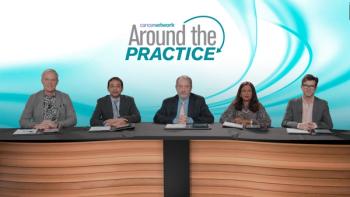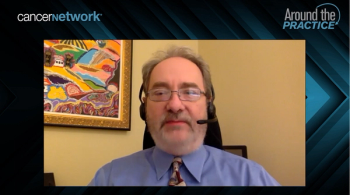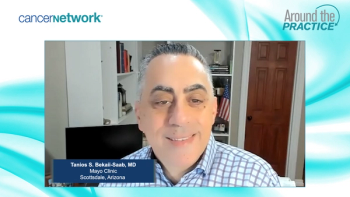
Study Results Show Promise for Neoantigen Targeting Strategies Such as Peptide Vaccines
Researchers used next-generation sequencing to analyze the landscape of neoantigens, identifying neoantigen-specific immune cells triggered by immunotherapy.
A study published in Clinical Cancer Research found that somatic mutations in multiple myeloma can be immunogenic and induce neoantigen specific T-cell activation that is associated with antitumor activity in vitro and clinical response in vivo.1
These results may provide the foundation for using neoantigen targeting strategies such as peptide vaccines in future trials for patients with multiple myeloma.
“Tumor neoantigens represent excellent targets for immunotherapy, due to their specific expression in cancer tissue,” Samir Parekh, MD, associate professor of oncological sciences and medicine (hematology and medical oncology) at the Icahn School of Medicine, said in a press release.2 “Until now, there has been no direct evidence that DNA mutations induce neoantigen-specific T-cell responses following immunotherapy in multiple myeloma.”
Next-generation sequencing data was analyzed to describe the landscape of neoantigens in this cohort of 184 patients, and researchers were able to identify neoantigen-specific immune cells triggered by immunotherapy. Additionally, researchers demonstrated an increase in neoantigen load in patients with relapsed multiple myeloma as compared to newly diagnosed patients with the disease. Researchers also identified shared neoantigens across multiple patients in 3 multiple myeloma oncogenic driver genes (KRAS, NRAS, and IRF4), which could lead to new vaccine therapies.
This is the first study to experimentally determine the immunogenicity of predicted neoantigens from next-generation sequencing of patients with relapsed multiple myeloma.
“Overall, the data presented here support that mutational burden is associated with increased neoantigen frequency in [patients with] relapsed/refractory multiple myeloma, and these neoantigens can elicit cytotoxic CD8+ T-cell activity in the setting of combination immunotherapy,” the authors wrote.
Following this research, co-author Nina Bhardwaj, MD, PhD, professor of medicine (hematology and medical oncology) at the Icahn School of Medicine, and colleagues are pursuing a clinical trial (Personalized Genomic Vaccine 001 [PGV-001], NCT02721043) investigating the safety and responsiveness of a personalized neoantigen vaccine for the treatment of cancers, including multiple myeloma.
In this study, researchers demonstrated CD8+ T-cell responses at 200 days for patient 1, 240 days for patient 2 after dual checkpoint inhibition, and at 300 days for patient 3 after anti-PD-L1 treatment. Moreover, longer follow-up from the PGV-001 study, which uses a strategy of 10 vaccinations over 180 days with Poly-ICLC (Hiltonol) adjuvant, will inform directly about the durability of responses.
As of the study’s publication, preliminary data from the PGV-001 study demonstrated ex vivo responses to neoantigen peptides were undetectable at week 0 but were clearly evident at week 27 post vaccination. “We believe these could potentially be sustained with booster strategies such as additional vaccines; immunomodulatory drugs (IMIDs) or checkpoint inhibitors,” the authors wrote.
Researchers are testing various combinations of these strategies in vitro with the intention of publishing results from the PGV-001 study in the future.
References:
1. Perumal D, Imai N, Laganà A, et al. Mutation-Derived Neoantigen Specific T cell Responses in Multiple Myeloma. Clinical Cancer Research. doi:10.1158/1078-0432.CCR-19-2309.
2. Researchers Identify Potential Formula for Blood Cancer Vaccine [news release]. New York. Published December 19, 2019. markets.businessinsider.com/news/stocks/researchers-identify-potential-formula-for-blood-cancer-vaccine-1028776929. Accessed January 6, 2020.
Newsletter
Stay up to date on recent advances in the multidisciplinary approach to cancer.






































